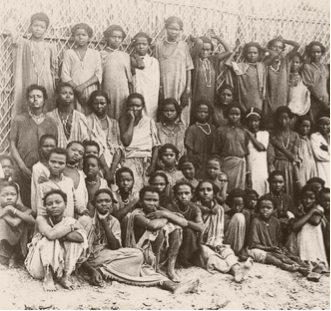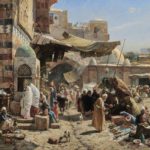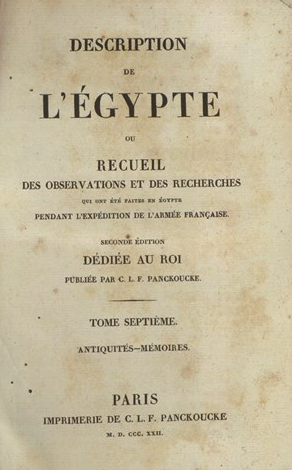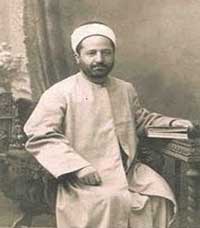
The distinctive feature of the Orientalist writers was they were observing Muslim communities at a time and age when it was not possible for Muslim shaykhs to speak on sensitive topics of political or social importance, since these were topics prohibited, unknown or simply beyond the conception of Muslims at the time.
BY SAMEH ASKER
EGYPTIAN SOCIETY, for example, has never monitored the culture and behaviour of Egyptians in the way that the scholars of the French campaign did in The Description of Egypt. This was a comprehensive encyclopaedia compiled by French Orientalists who accompanied the French army in order to understand Egypt, its people and its history. The most conspicuous thing they found, something central to the understanding of the history of the ancient Egyptians, was the ‘Rosetta Stone’. By its decipherment the world was able to gain a precise history of ancient Egypt after having remained unknown for a period of more than 2,000 years.
I recall that the orientalist Edward Lane also said that there were white slaves in the homes of the wealthy – their high price rendering them beyond the means of the lower and middle classes. This was particularly the case with women. As for black slaves, their price was low for both males and females, and the Muslim at that time preferred to purchase black males slaves to serve him, rather than black slave-women to have sexual intercourse with (with the exception of some Abyssinian women whose beauty made them the favourite for Egyptians, since their colour was similar to the Nubians of southern Egypt, especially the Muslim Oromo).
By merely presenting this information we get a picture of the beliefs of Egyptians in this era, certainly an important picture and one by which we may understand the way the Egyptian mind developed and its impact on modern Egyptian culture.
Orientalism was not preoccupied with religion and metaphysics, nor with refuting faith as Muslim fundamentalists imagine
I read an old article by Bernard Lewis in which he says that ‘slave farms’ were widespread in Sudan. Slave traders here built farms much like livestock farms, and with the help of the Sudanese élite they managed to capture and enslave thousands of blacks – especially from Darfur – to put these on the plantation and fatten them up to be sold as slaves in Egypt, the Levant and Iraq. In my view, Lewis’s account refers to the time of the decline of white slavery in Egypt and the Levant as a result of the Russian invasions which deprived them of the sources of this type of slave. The price differential from black slaves had to be compensated by increased quantities in order to maintain price stability. Although I focus here on one feature in Edward Lane’s work – slavery – the book is a very rich mine of information in general and presents many other aspects of the ways Egyptians lived in this period.
I recall another example, the case of the French Orientalist Brice Davin (ob. 1879). He emigrated to Egypt during the reign of Muḥammad ‘Alī Pasha and worked as an employee in his administration. He loved Egypt and its people and became Egyptian in his speech and in his behaviour, deciding to call himself ‘Idris Effendi’. He began to study the ancient Egyptian civilization and left a collection of letters in addition to his famous autobiographical Memoirs of Idris Effendi. His efforts on the ground saved many of Egypt’s antiquities from destruction in Upper Egypt.
One of the rare incidents that he narrated, if true, reveals the extent of the backwardness and ignorance of state employees. While Muḥammad ‘Alī Pasha was building a gunpowder factory in Luxor, the principal decided to remove stones from the temple at Karnak to reuse them for building the factory. Because Idris Effendi was in charge at the time and knew the cultural value of the temple, he refused and raised this issue, and with his insistence the demolition of the temple was halted. From this story it is evident that Idris Effendi was an opponent of Muḥammad ‘Alī and his regime, and highlighted many grievances and political and social realities during his reign.
For those who want to know the other side of Muḥammad ‘Alī’s rule – the injustice and the backwardness – they should read these memoirs, since the era of Muḥammad ‘Alī is commonly touted as an era of science, enlightenment and renaissance. It probably was in general, but from the memoirs of Idris Effendi it becomes clear how this happened and at what expense. Was the Pasha really a believer in science or in covering himself with glory? Was he opposed to the domination and injustice of the clergy, or was he employing them against his opponents?
Through the foregoing, it is clear that Orientalism was not preoccupied with religion and metaphysics, nor with refuting faith as Muslim fundamentalists imagine, but was rather a wide-ranging epistemological movement seeking a vision and seeking to assimilate itself within a broader scientific movement – a movement linking this knowledge of the Orient to the industrial and scientific developments prevailing at the time.
Critics of Orientalism in Arab and Islamic culture are taking a narrow view of the phenomenon
We can see that critics of Orientalism in Arab and Islamic culture are taking a narrow view of the phenomenon of Orientalism and are generalising its application to all and every activity of Western thinkers or philosophers. Yet these are merely setting out to understand the East in a way far removed from what the local press report, and which portrays Arab and Muslim countries negatively. This is especially so after the demonization of Islam that took place in the Western press following the events of September 11, 2001, where we can observe an orientalist current that is more extreme, less objective or accurate than in the past, one which aims to deal with Islam in a political rather than epistemological way.
The current situation, in which the power of ISIS and al-Qaeda has expanded, is characterised by the rise of a modern orientalist current that is challenging the roots of Islam itself in terms of its geography and language. It takes advantage of the achievements of modern science, such as philology, etymology and anthropology. The work of others, such as Dan Gibson, Michael Cook and Christoph Luxenberg and the revived theses of Patricia Crone with her views on the geographical and historical roots of Islam, is significantly different from the 19th and early 20th century of Theodor Nöldeke, Julius Wellhausen, Ignaz Goldziher, Joseph Schacht and others. This objective movement influenced Muslim thinkers and shaykhs, prompting some to review their religious standpoints in a way unprecedented in Islamic history. Thus Goldziher and Joseph Schacht influenced the work of the Shaykh Rashīd Riḍā’s Al-Manār periodical which led many Muslim shaykhs to audaciously challenge and criticise the hadith and Islamic history in a way previously unknown.

Suggested Reading
Goldziher’s writings also influenced the writings of Muḥammad Arkoun, Naṣr Ḥāmid Abū Zayd among others, and prompted many Muslim scholars and thinkers to re-evaluate the concept of the Islamic caliphate and the relationship of the Islamic religion to it. Those who have initiated this and inspired the human mind to understand the difference between the caliphate and Islam itself, are German Orientalists. In their footsteps many Muslim scholars have come to the point of declaring the caliphate as a historical stage that has now ended, and that any form of human governance and political experience is not to be generalized as an absolute and become binding for every time and place.
Were It not for the considerable intellectual shock that they suffered, they would not have rushed to violence
This has led to waves of criticism and has impelled some extremists to establish military groups designed to restore the dreams of the religious caliphate, groups that we now know as the terrorist movements of ISIS, Al-Qaeda and the Muslim Brotherhood. Were It not for the considerable intellectual shock that these people suffered, they would not have rushed to violence as some automatic reaction to the collapse of one of the greatest and most iconic beliefs of Muslims in the Middle Ages – the caliphate and the authority of the muḥtasib.[1] The collapse, as they see it, has not only been at the hands of Westerners, but also of senior Muslim shaykhs, the most recent of whom is the Shaykh of Al-Azhar whoRi in 2016 issued a fatwā declaring that the caliphate is not one of the pillars of Islam but that it is just ‘an experiment in political rule’.
[1] See Glossary: ‘Hisba’.
Main image: Oromo slaves rescued by the British ship HMS Osprey in 1888, as part of the Royal Navy’s anti-slave trade mission in the Red Sea. They were being transported for resale in Arabian markets.
Read Part One of this essay here
Read Part Two of this essay here


